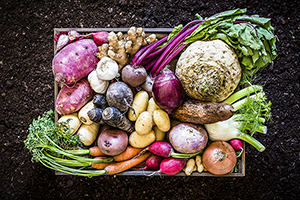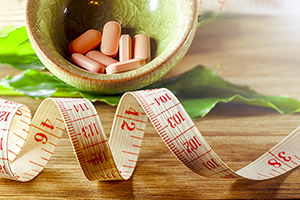



| By Dr. Ronald Hoffman

Protecting our children: “More kids are getting COVID!” (USA Today); “Children’s hospitals fill up as virus cases soar” (The Hill) shout the headlines. The NY Times recently ran a story on a 15-year-old honor student with “long COVID” who now can barely think straight and is failing classes. Concern over COVID in our young people is being invoked to reinstate a mask mandate among school kids and to promote vaccinations in over-12s, soon to be augmented by elementary school kids and toddlers once the shots receive expedited approval for young children. Consternation and uncertainty reign as children head back to school.
The death or serious illness of even one child is certainly a tragedy, but let’s keep perspective: children are very unlikely to suffer hospitalization or death from COVID; the latest studies show that while pediatric long COVID is a thing, it’s exceedingly uncommon, on the order of 1 in a hundred or less.
The CDC reports around 10,000 young children die each year in the U.S. Major causes of deaths include cancer, accidents, choking, poisonings, drowning, electrocution, gun violence, and, regrettably, suicide and drug overdoses. So far, around 400 American children have died of COVID, which is admittedly terrible. The vast majority had immune-compromising conditions or severe developmental disorders. That comprises less than 1/2 of one percent of annual childhood deaths, and represents about 2 for every million children. For comparison, since 2004-2005, flu-related deaths in children reported to CDC during regular flu seasons have ranged from 37 to 199 deaths, but spiked to 358 in 2009-2010 during the H1N1 pandemic.
Paradoxically, we unleash harmful chemicals into our environment, and feed ultra-processed food to our kids; some of us smoke and drink to excess; few of us exercise enough to stave off premature degenerative disease. Childhood obesity is rampant, affecting over 20% of kids 6-11. If you’ve driven a car lately, you’ve probably noticed impatient people speeding by you even when you’re doing 70 in a 55 mph zone. We inhabit crime-ridden urban zones where homicides—too often of kids and teenagers—are accelerating. Deaths of despair have been facilitated by proliferation of cheap accessible drugs. Nearly 841,000 people have died since 1999 from drug overdoses. In 2019 alone, 4,777 individuals aged 15-24 died from drugs and alcohol. COVID has only accelerated the drive toward addictive behaviors.
Part of our problem is COVID-driven excessive intolerance for any harm whatsoever. O. Carter Snead wrote in the aptly-titled What It Means to Be Human: The Case for the Body in Public Bioethics (published in 2019, before COVID): “You think about the flu, you think about other diseases that could be dangerous—or just driving your car—and it feels to me that our risk tolerance is basically zero at this point. And what does that mean? Is the point of human life to simply hide away in a bubble-wrap container so that you don’t encounter any risk?”
More proof that diet matters in COVID: A recent large study looked at the link between diet and COVID in frontline physicians and nurses in six countries (France, Germany, Italy, UK and USA). These health care workers had a high degree of exposure to infectious patients with COVID during the pre-vaccine period, July through September 2020. Of 4,460 individuals surveyed, 568 eventually tested positive for COVID. They ranged from asymptomatic to severe disease requiring hospitalization.
Each was asked to submit a diet history based on recall. Those reporting “plant-based” diets or pescatarian diets were associated with 73% and 59% lower risk of moderate-to-severe COVID illness. Those reporting a low-carbohydrate, high-protein diet had a 48% increased risk of moderate-to-severe COVID, but the sample size was too small to draw statistically significant conclusions.
COMMENT: Astute readers might say, of course, the vegetarians and pesco-vegetarians were probably thinner, and less likely to have diabetes or hypertension, which are comorbidities for COVID. But the researchers controlled for that, so it wasn’t just that the plant-based diet folks were more fit.
Additionally, one cannot draw any inferences about the harmful effects of moderate amounts of animal protein. Studies that suggest that meat consumption is unhealthy are often bedeviled by the fact that high consumers of animal protein often eat too many processed meats and eschew healthy amounts of vegetables and fruits. Moreover, in this study, respondents self-reporting a “plant-based” diet encompassed a wide swathe of pure vegans, ovo-lacto vegetarians, as well as vegetable lovers like me who choose to include moderate amounts of animal protein as part of a “whole food” diet.
No question, if you adhere to a plant-based diet, you’re assured of getting plenty of beneficial polyphenols, many of which have been shown to counteract COVID (see below); additionally, all that extra fiber may be helpful for the microbiome, known to be an important mediator of immunity.
The problem is, many people who opt for low-carb diets don’t include enough fresh vegetables, nuts, seeds, and berries which deliver important immune benefits. When properly executed, low-carb and even keto diets can deliver some of the positive attributes of plant-based diets.
Yep, it’s those polyphenols! In a review entitled “The Impact of Polyphenol-Based Diets on the Inflammatory Profile in Covid-19 Elderly and Obese Patients”, Brazilian researchers cite mounting evidence that a high intake of dietary polyphenols may have a protective effect on SARS-CoV-2 illness severity.
They report that polyphenols like EGCG from green tea, quercetin from onions and apples, lignan from flax, fisetin from strawberries, resveratrol from grapes, apigenin from celery and oregano, caffeic acid from coffee, as well as a myriad of other plant compounds, have documented anti-viral and anti-inflammatory effects.
They even go so far as to suggest that, beyond prevention, polyphenols “ . . . could have potential . . . for the treatment/management of patients with viral infections such as SARS-CoV-2”.
Americans, hard-hit by COVID, are notorious for failing to meet requirements for fruits and vegetables. In a recent NHANES study, 1/3 of US adults consumed no fruits on a given day; 5% consumed no vegetables. USDA food consumption surveys find that the average American falls far short of a healthy goal—consuming only 0.9 cups of fruit and 1.4 cups of vegetables per day.
Last week, I broke precedent and did a special 2-hour podcast series with Dr. Leo Galland on the emerging problem of long COVID—the debilitating aftermath of even relatively mild COVID infections, afflicting as many as 10% of survivors. Figuring prominently in the recovery strategy is a polyphenol-rich diet, and deployment of specific polyphenol supplements. You can listen to the series here.
Though we think of declining estrogen as the hallmark of menopause, it's actually common for…

Up to 12 percent of Americans have ulcers at some point in life. Peptic ulcers…
Gallbladder disease is a modern illness. An estimated 20 million Americans have gallbladder disease. The…

This past week we were regaled with headlines like: High levels of niacin may increase…

March is National Nutrition Month and, needless to say, good nutritious food is essential to…

I recently attended the Integrative Healthcare Symposium (IHS), an annual conference held here in Manhattan. The…

Q&A with Leyla, Part 1: A Nicotine Vaccine

Our virtual voicemail is open 24/7, so there's no need to wait to submit your questions for Dr. Hoffman. Leave a message, and you may hear your question featured on the Intelligent Medicine radio program!